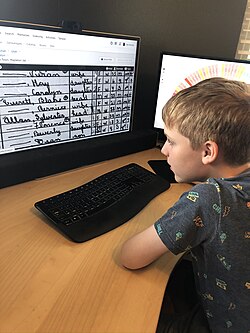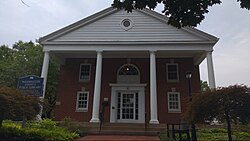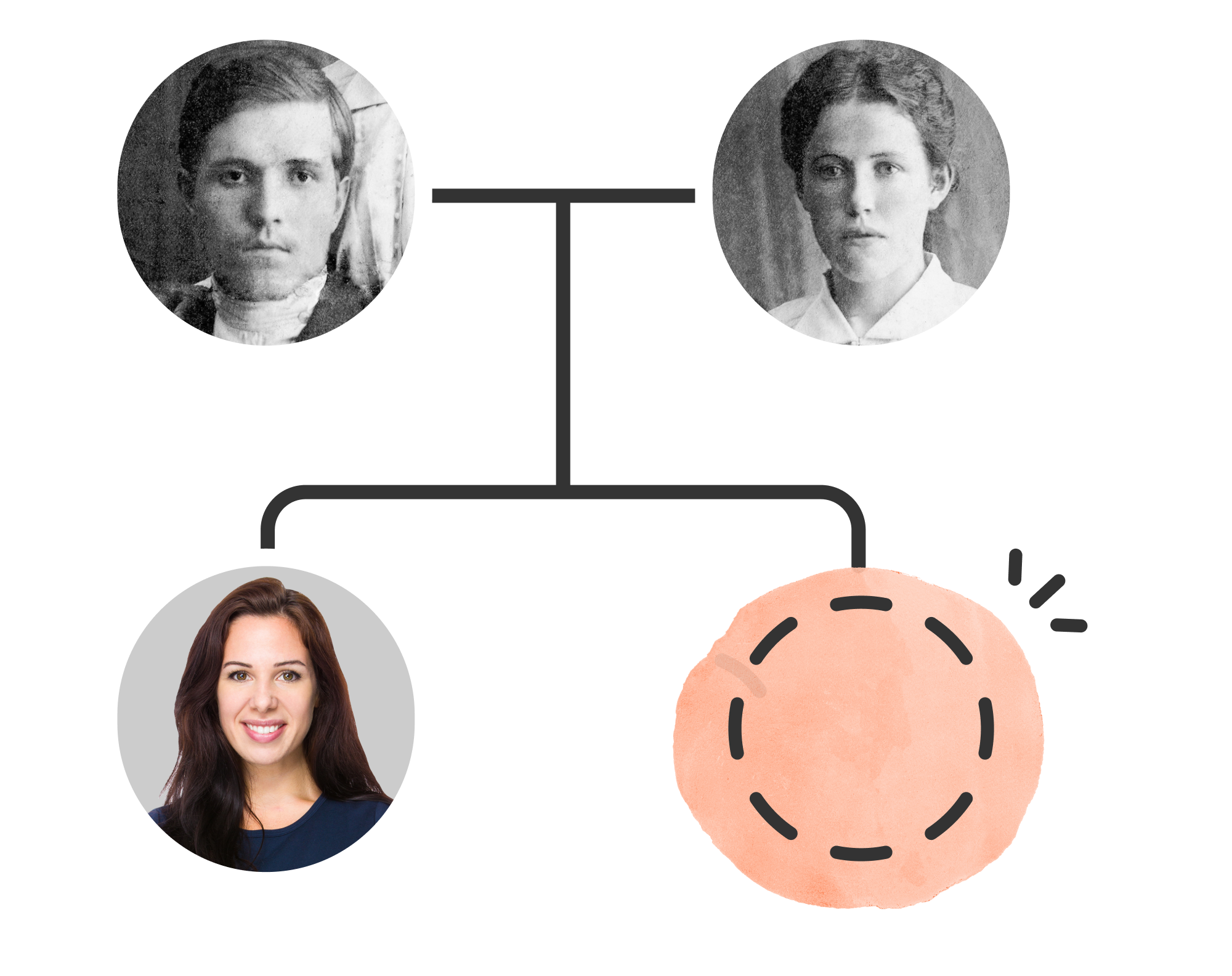
Becoming a professional genealogist takes a little more than creating a website. Many hobby-level genealogists have been working on family research for years. That's a great start to show your passion and staying power in the field. Many countries have no solid requirements for performing as a professional genealogist. But it takes more than enjoying the process and having a company name to turn a passion into a business. Consumers need to believe you're not only educated, but professionally prepared to tackle their project or problem.
There are amazing opportunities worldwide for professional genealogists: Some family historians want to expand to help others. But most consumers these days want some sort of proof that you know what you say you know. That's where certification on your wall or website "wall" shows potential customers that you have earned their trust. You take your job and their project seriously.
Research your ancestors on MyHeritage
Consider your personal preferences before choosing the direction
How do you like to work? Do you prefer teamwork or individual achievement? Would you be happier as your own boss or for someone else? Do you prefer being on a team or on your own? Then, consider whether your internal drive is motivated to become a business owner willing to take calculated entrepreneurial risks. Do you like the sense of security and the benefits of working for an employer? Or, have you always wanted the challenge of owning your own business? Large and small businesses hire professional genealogists in a variety of positions, but they need to know you have the abilities to do the job. Maybe you'd like to work for a company that builds family trees and helps discover DNA connections, legal offices, publishers, technology, labs, court and/or government heir and repatriation projects, and hundreds of other small to large businesses, then matching your skills and experience to the job you’d like to have will show the education you need.
Let's preview a few ideas for professional genealogy positions
Many companies have family history researchers, teachers, content writers, social media specialists, tech and website developers, website designers (the consumer side of website), translators, editors, event planners (even teams of event planners), collection librarians/managers, customer service, podcast/media producers, and more on staff. Most companies have such a wide variety that, with patience, a professional genealogist may find the corporate job of their dreams or a position that allows a chance to grow into that dream job.
How does a professional genealogist find a corporate position?
Follow the companies of interest, particularly their job postings and blogs. Network online on LinkedIn, Facebook, Twitter, etc. while subscribing to their newsletters. Prepare your resumé, give it minor tweaks to suit the position. Watch what other positions are available. Pay attention to descriptions, contact information, details of what they’d like submitted, how to submit your application, and any contact names/emails/phone. Once you discover a corporate position, take time to research it. Then, consider the skills from previous jobs and education. Include volunteer positions, particularly if that volunteerism is in the arena of the potential job. Employers are interested in skills from volunteer jobs if they’re marketable. Those skills aren’t all, though. People who are involved in their communities, have positive and helpful personalities, and don’t sit idle are of high interest to employers.
Some suggestions for actions to avoid:
- Cold calling
- Sending your resumé en masse
- Overselling/underselling your capabilities
- Assuming different companies do things the same way
Some solutions:
- Go in and meet people at public events, learn about the company you’re interested in as part of your employment research.
- Be familiar with the business or service so you can speak with an understanding of their goals.
- Be involved in the genealogy industry.
- Attend a trade school like the International Institute of Genealogical Studies to build a well-rounded knowledge in the area of your interests.
- Build people skills. Genealogists tend to be solitary in their work, but interpersonal skills help you shine!
Remember, some of the most desired traits in an employee are positive personality, being teachable and motivated, and the ability to work well with others. Then, they’ll look at your experience and expertise. Having a certification is valuable for catching the attention of the interviewer!
But what does certification mean in the world of genealogy?

The word "certified", is exchanged with different definitions to the confusion of those wanting an education. There are many accrediting groups, sometimes called boards. Some of those accreditations are also called "certified". But earning your education credentials comes before testing in one of these groups/boards. Learning Methodology is foundational to understanding how to research, document, and report to clients. Then adding on a records group like US (also called American), Australian, Canadian, Eastern European, English, German, Irish, Italian, Scottish, and more focus your certification program on specific areas. Expand on them in continuing education, but each record group has its own nuances crucial to genealogists. A Professional Learning Certificate in Genealogical Studies is very important to becoming a professional genealogist. The post-nominals, PLCGS, are displayed after your name much like a doctor has an "MD" or "Ph.D" designating them as professionals in their industry. As a lawyer or doctor attends school, then must pass a board verifying their knowledge, the PLCGS is proof you've become a professional in your field. Education first, then if you decide testing with a board or specialty group is crucial to your career, take the test. As other professions require continuing education, so will your chosen field. Genealogical science does not stand still. Keep up to date as you move forward in your career.
Accrediting boards/groups will require quite a bit of your time over a period of months to years as you prepare a project. Some will require lengthy tests and oral exams. Full research projects are judged for accuracy, citations, report writing, and proof. The rigorous testing and report/project preparation should be done after a solid education foundation in Methodology and the country record group of your choice. You don't want to waste years trying over and over again. Additional considerations include whether you'll need to re-qualify. If so, how often and what is the cost in time and/or money?
A few of the accrediting groups include:
- Board of Certified Genealogists (accreditation is Methodology only)
- ICAPGEN - International Commission for the Accreditation of Professional Genealogists
- Genealogical Institute of the Maritimes
There are many more, though none are required to act in the profession of genealogy. Sometimes they're helpful for gaining a footing in that particular group or speaking at certain conferences managed by a particular group. Most of these testing entities are focused on a particular specialty. If you're not working in that specialty, there would be no need to apply for testing at that organization.
Be sure to brush up on your genealogical skills whether you're building a business, preparing for board accreditation exams, or earning a Professional Learning Certificate Genealogical Studies (PLCGS). You'll create a marketable resumé and trust in you as a genealogist.
What are your next steps to becoming a professional genealogist?
First, choose a country-themed certificate like American Records or topic of interest like DNA and Genetic Genealogy to shape your career path with a combined certificate plan for your electives. Strategically combining certificates builds a stronger structure around your areas of expertise, too. Someone with a combined certification in Irish Records/DNA and Genetics is going to be a stronger hire or business owner than someone who only has one or the other.
Next, find the school that fits your lifestyle. Some schools have quite rigid attendance requirements that fit full-time student experience and in-person classrooms. Some provide online learning, but also rigid programming with 20-30 or more hours a week required. Some provide only webinar lectures. The International Institute of Genealogical Studies allows you to go at your pace with online course work, Zoom meetings you can attend or watch the recordings of later, and support through student groups as well as regular connection with real people via phone, Zoom, chat app, and email. Regardless of the style of study, it needs to fit your learning style and your lifestyle. Some people flourish in tightly structured situations while others need flexibility to care for family or manage work duties or both. Look for the school that offers the level of structure or flexibility that you personally need to succeed.
All the above school styles are valid. The question for you is... Which fits your lifestyle best? Then be sure to check on how flexible those schools are with personal needs, family needs, and other work or life commitments. A few other crucial questions to ask are:
- What types of courses are offered?
- What if I have to withdraw from a course or program?
- What happens to your enrollment?
- Can you re-register, and what is the cost if you do have to withdraw or delay a course or program?
- How can you transfer to another course or program?
Methodology is only the foundational beginning. Once trained in the methodology of genealogical science, what schools offer the country records you're interested in? What kind of professional development and business courses are available to help you set up your business? Do they teach marketing? Creative courses in artistic, visual, writing, interviewing, and publishing? What about continuing education? Are there specialties for librarians and docents handling genealogical collections? Are there specialties in the areas of the country or world you'd like to feature for your clients? What social and historical courses help you discover who those ancestors really were and what they were like?
Do you need to become certified or accredited? Not in most countries. But remember, a proper education will provide professional proof to your potential clients or the company you'd like to work for in the future. More, a proper education avoids the pitfalls of the "Swiss Cheese Effect". What's that? It's like walking along confident in your knowledge until you suddenly fall through a hole and get lost in what you don't know. Following a standard helps fill in those holes that surprise you. A proper education does build trust for your client, but it also builds foundational confidence for you personally.
Remember, you're not charging for your time because you say you're a professional. You're billing clients because your education and expertise will solve their problem. The more education and expertise, the more your clients will gladly pay to reach their goals because they don't have the education, expertise, and/or time to do it themselves. Be the educated expert for them. Becoming a professional genealogist takes a little more than creating a website. Many hobby-level genealogists have been working on family research for years. That's a great start to show your passion!
Explore more about becoming a professional genealogist
- Webtember 2023: Free Online Genealogy Conference All September Long on the MyHeritage blog
- Genealogy Basics Chapter 1: How to Interview Relatives on the MyHeritage blog
- Genealogy Basics Chapter 2: Build a family tree in six steps on the MyHeritage blog
- Genealogy Basics Chapter 3: Discovering Historical Records on the MyHeritage blog
- Genealogy Basics Chapter 4: Using Photos to Discover More About Your Ancestors on the MyHeritage blog
- Genealogy Basics Chapter Five: Digitizing and Storing Photos and Documents on the MyHeritage blog
- Genealogy: What skills do we need? on the MyHeritage blog
- 8 Things a Genealogist Should Carry at All Times on the MyHeritage blog
- 13-Year-Old Budding Genealogist Visits MyHeritage on the MyHeritage blog
- Introduction to Genealogy Course on the MyHeritage Knowledge Base


